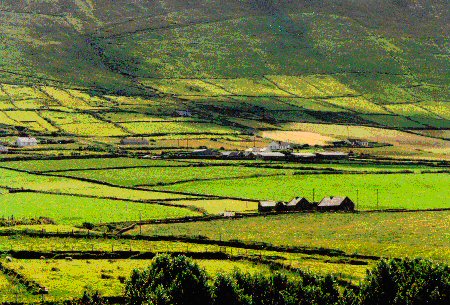We also learn from Bradshaw’s Directory (1820) that the patent granted in 1613 by James I to Arthur Bagenal made an exception of certain Newry lands formerly granted by Sir Nicholas and Sir Henry Bagenal (Arthur’s grandfather and father) to one Patrick Creely. One line of thought is that Creely was the last Cistertian monk of Newry!
We do not know for sure why these lands were so granted by the Bagenals (one common reason was to discharge a debt) but the arrangement was of long duration and was cemented by the James I patent, long after the deaths of both men! The original grant to Creely had been dated 20 June 1588 – incidentally the year of the Spanish Armada – and included two water-mills in the town of Newry (virtually the only power source in that century) with their water courses and also two weirs in which ‘salmon and eel had been commonly taken’.
It appears – continues Bradshaw – that this Creely, in the reign of Queen Elizabeth (i.e. before her death in 1603) built the castle afterwards called Lord Hillsborough’s castle. This is clearly a second castle (i.e. not Bagenal’s) and it is believed may have been the one at the head of
Creely’s property, including land in Carnehaugh (north-east Newry) was purchased from the heirs of Creely by Mr Hill, also ancestor of the present Marquis of Downshire.
Just over a century after the James I patent to Arthur Bagenal, Nicholas Bagenal, a grandson of the first Nicholas divided his property between two cousins Robert Nedham and Edward Bayly, the latter getting the Louth estates. A descendant, when raised to the peerage, became Marquess of Anglesey (even in the first Nicholas Bagenal’s time, the family had estates in Wales) after whom the mountain facing Narrow Water is still named on some OS maps.
Robert’s grandson William Nedham, not having married and having no male relations, left his property to one of his name who was no relation (his elder brother George had already sold part of his portion to discharge a debt!). The descendants are the present Needhams.
The native Irish, of course, were given virtually no say in their town’s or country’s affairs or property.
Cynics might say – with the inability of politicians to agree and the ousting of local trades persons and shop-keepers by multi-national concerns – that this is the only aspect not to have altered much ever since!
… more … ?
